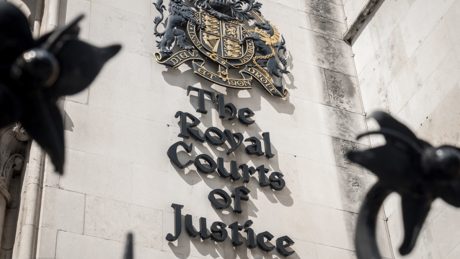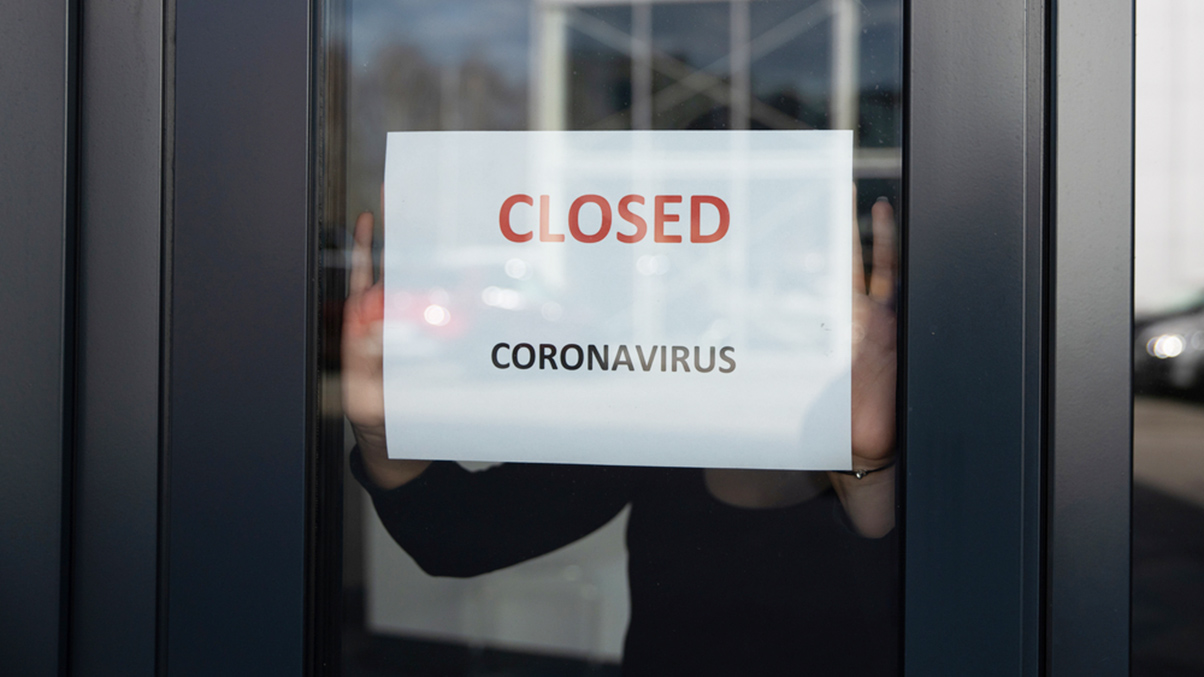As the coronavirus pandemic disrupts almost all aspects of day-to-day life, it continues to place unprecedented pressure on our public services. While the NHS is undoubtedly under immense strain, other public services, including the justice system, face difficulties of their own. Laura Jenkins (Partner), Angela Milner (Senior Associate, Knowledge Development Lawyer) and Matt Caples (Associate) look at the practical implications of Covid-19 on civil litigation.
Notwithstanding the current restrictions, the justice system continues to function, and it is vital that it does so efficiently, safely and in a manner consistent with governmental advice.
Lord Burnett of Maldon, the current Lord Chief Justice, in a statement published on 17 March 2020, put it this way: “It is not realistic to suppose that it will be business as usual in any jurisdiction, but it is of vital importance that the administration of justice does not grind to a halt.”
In this article, we consider the practical impact of the coronavirus pandemic (and the restrictions imposed to deal with it) on case management, as well as on the preparation for and attendance at hearings.
Part 1 – Extensions of time, adjournment, stay and other practical considerations
For cases to be managed in accordance with the overriding objective, deadlines for procedural steps are agreed or set by the court. Compliance with those deadlines ensures proper and timely case management, as well as proper preparation for hearings and trial.
With most individuals now working remotely in isolation, and with businesses facing unprecedented disruption, the otherwise day-to-day work required to meet deadlines (such as taking instructions, reviewing documents and liaising with third parties, such as counsel) may prove to be significantly more difficult or, in some instances, practically impossible. These difficulties may result in parties requiring more time to comply with court ordered or agreed deadlines.
Extensions of time
Ordinarily, and subject to express exceptions, parties are able to agree to extend deadlines without the permission or approval of the court for up to 28 days, as long as they do not put hearing dates at risk (Civil Procedure Rule (CPR) 2.11 and 3.8(4)). Those extensions ordinarily require written notification to be sent to the court.
For extensions beyond 28 days, the court’s permission is ordinarily required. This often means the filing of a consent order (where parties agree to an extension of time), or an application under CPR 23 (in the event that there is no agreement).
Many in the profession had remained hopeful that the requirement to seek the court’s permission for extensions of more than 28 days would be relaxed in light of the current situation. On 2 April 2020, PD 51ZA was introduced and amends CPR 3.8, increasing the 28-day limit to 56 days. Any extension of time, whether agreed by the parties or on application by a party, beyond 56 days, will require the permission of the court. An application for such permission will be considered by the court on the papers.
In the unprecedented times we now find ourselves in, many parties find themselves a victim of circumstance and we are likely to see a rise in requests for extensions of time. It remains to be seen how sympathetic judges will be to (i) parties requesting long extensions due to issues caused by the coronavirus restrictions, or (ii) those who refuse to agree to them. However, we anticipate that parties will be expected to behave reasonably and to consider carefully whether any prejudice they claim to suffer as a result of an extension is sufficient to justify withholding consent.
Adjournment
CPR 3.1(2)(b) allows a court to bring forward or adjourn a hearing. There are a multitude of reasons as to why a party might apply for an adjournment. However, where there is no agreement between the parties, the court will need to be persuaded that it should grant the adjournment sought.
When considering a request for adjournment, a court will balance the potential prejudice suffered by the party seeking adjournment if the hearing proceeds with that suffered by the respondent party in the event of the hearing being delayed. The court must also consider the overriding objective, including the effect that adjournment may have on other court users.
There will undoubtedly be some parties who seek to adjourn hearings (either in light of genuine difficulties raised by the pandemic/the restrictions flowing from it or because they would benefit strategically from delay). It will be interesting to see (i) how many parties apply for an adjournment in the coming weeks/months, and (ii) the stance that will be taken by the courts to any such requests. However, early indications (as per the Protocol Regarding Remote Hearings dated 20 March 2020 (the Remote Hearings Protocol)) suggest that the courts are keen to press on with hearings if at all possible. This includes if key witnesses/participants are unwell (when they “may” be excused from attending court, but the hearing “may” or “may not” be “pushed back”), or where consideration “should be given to alternative hearing arrangements including audio and video to allow the case to go ahead (advice given by the Senior Presiding Judge ).
Stay
The court has the power to stay proceedings under CPR 3.1(2)(f) on the application of a party or of its own initiative (CPR 3.3).
While there are multiple reasons why a party might seek to stay proceedings, unsurprisingly, there is scant case law on the reason of worldwide pandemic. However, it seems unlikely (given the court’s stated preference to continue to administer justice and to embrace technology), that it would be minded to stay proceedings due to the pandemic.
Alternative Dispute Resolution (ADR)
The courts and its users alike are experiencing a change to working practices which is causing some delay to usual court processes. It may be that the anticipation of slower progression of proceedings might lead to parties considering, or reconsidering, whether now is a suitable time to engage in ADR, such as mediation.
Like the courts, mediators are embracing technology to assist with remote mediations. However, unlike a hearing or trial where prolonged periods of advocacy are required with all parties in attendance (often by reference to large volumes of documentary evidence), mediation does not follow the same format. It is often less formal, consisting of multiple smaller sessions with fewer time constraints. Arguably, a mediation better lends itself to being conducted remotely than a hearing. Only time will tell whether the challenges presented by the pandemic lead to a widespread increase in the use of mediations (or other forms of ADR).
Part 2 – Hearings
The Ministry of Justice (MoJ) points to the use of “telephone or video links” as the means by which justice might continue to be delivered. The MoJ “will make as much use of [its] current technologies as possible, and [is] working urgently to increase [its] capacity, so [it] can keep our courts and tribunals running smoothly.”
Telephone hearings
Hearings have been held by telephone conference for many years with specific provision made for them in CPR 3.1(2)(d): “Except where the Rules provide otherwise, the court may… hold a hearing and receive evidence by telephone or by using any other method of direct oral communication.”
There has long been a presumption that hearings will be conducted by telephone for allocation hearings, listing hearings, interim applications, case management conferences and pre-trial reviews expected to last no more than an hour (PD 23A.6.2). The CPR then sets exceptions to that presumption in PD 23A.6.3, which include hearings made without notice, where none of the parties is represented or where more than four parties will make submissions.
In reality, where cases are of a value sufficient to find their way to the High Court, many hearings will fall within these exceptions, for example, many hearings will not be listed for an hour or less. The court may nevertheless make an order for a hearing to take place over the telephone of its own initiative (taking account of the nature and complexity of the issues to be determined, the extent of evidence, length of the hearing and potential cost saving) or at the request of the parties (PD 23A.6.5).
While the rules that determine which hearings may be appropriately disposed of on the telephone are informed by practical considerations, in times such as these it seems likely that the perceived difficulties of holding a telephone hearing may become preferable to no hearing at all.
The use of telephone hearings has also been expressly endorsed by the Remote Hearings Protocol, and it is likely that there will be a substantial increase in these over the coming weeks and months.
Virtual trials
As a part of the court’s duty to actively manage cases, it already has jurisdiction to make use of technology (CPR 1.4(2)(k)). The court has traditionally used video link technology to allow a witness based overseas or who is unable to attend court to give evidence through a video link or by other means (as per CPR 32.3).
However, that the court will now go further to allow entire trials to be held via video link (so-called “virtual trials”) has been made clear by the case of the National Bank of Kazakhstan & Another v The Bank of New York Mellon & Ors, in which Stewarts acted for the claimants.
The fate of this case had been uncertain due to the travel restrictions and social distancing measures that had been put in place following the Covid-19 outbreak. However, notwithstanding the objections of some of the defendants to the litigation, on 19 March 2020 (one clear working day before the trial was due to commence), the Commercial Court directed that the trial should proceed, notwithstanding the fact that none of the participants would physically be in the courtroom. Mr Justice Teare directed that the parties make arrangements accordingly. A full review of the decision to hold the first virtual Commercial Court trial can be found here.
This is perhaps the clearest indication yet that the court expects parties to adjust, sometimes at breakneck speed, to the challenges presented by this pandemic. It seems likely that electronic bundles, video links, and YouTube (to enable the general public to watch the virtual trials) will soon become the new norm.
Applications without hearings
Technology may be the answer to many of the difficulties now faced, but reconsidering the necessity of hearings on an application by application basis may also assist. It is not uncommon for many applications to be dealt with “on paper” without the need for a hearing.
The CPR offers guidance:
- CPR 1.4(2): “active case management” includes “(j) dealing with the case without the parties needing to attend at court”.
- CPR 23.8: an application can be dealt with without a hearing when:
-
- the parties agree the terms of the order sought.
- the parties agree that the court should dispose of the application without a hearing.
- the court does not consider that a hearing would be appropriate.
Where one party has objected to a matter being dealt with on paper “only in exceptional circumstances… will the court dispose of an application without a hearing”.
Whether difficulty caused by the current coronavirus pandemic will be an additional factor to be considered when determining how to actively manage cases under CPR 1.4(2) remains to be seen. However, the MoJ has said “many more procedural matters may be resolved on paper within the rules”.
Going forward
The MoJ and judiciary continue to provide updates on measures they are taking to ensure that the administration of justice continues. Updates continue to be provided online on an almost daily basis.
Although it is unlikely that sweeping amendments will be made to the CPR purely as a result of the coronavirus pandemic, it is clear that there will be some. On 25 March 2020, the Civil Procedure Rule Committee announced that:
- CPR updates in response to the Covid-19 outbreak are under urgent consideration, and
- it is likely to be necessary to publish CPR updates at short notice.
As above, most recently amendments were made to the CPR on 2 April 2020.
Comment
Laura Jenkins, a partner in the Commercial Litigation department of Stewarts, comments: “The clear message from the judiciary is that when faced with a choice between (i) seeing justice done by utilising technology and holding virtual hearings or trials (or, in some instances, proceeding in the absence of important participants), versus (ii) delaying justice altogether, the court will do everything in its power to opt for the former. The courts, parties and lawyers are being expected to adapt at high speed to the challenges posed by the pandemic and the restrictions in place because of it. However, virtual trials such as National Bank of Kazakhstan & Another v The Bank of New York Mellon & Ors show that we as a profession, and particularly Stewarts as a firm, are more than capable of rising to these challenges.
It will be interesting to see whether the changes in court and working practices remain after the pandemic has abated.”
Covid-19 is impacting individuals and companies around the world in an unprecedented way. We have collected insights here to help you navigate the key legal issues you may be facing at this time.
You can find further information regarding our expertise, experience and team on our Commercial Litigation pages.
If you require assistance from our team, please contact us or alternatively request a call back from one of our lawyers by submitting this form.
Subscribe – In order to receive our news straight to your inbox, subscribe here. Our newsletters are sent no more than once a month.








